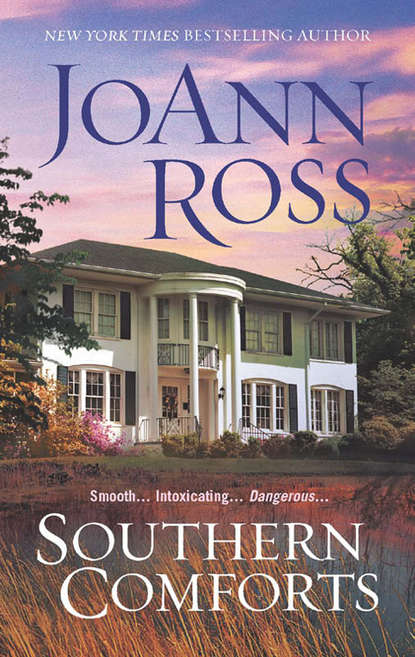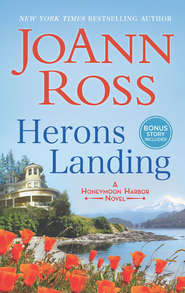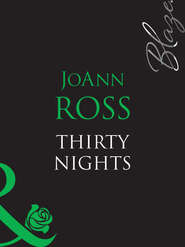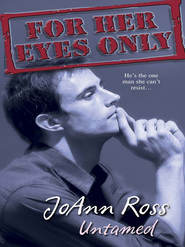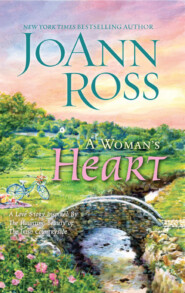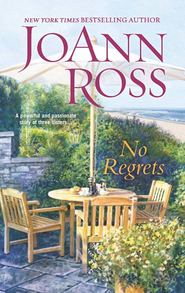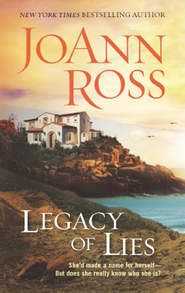По всем вопросам обращайтесь на: info@litportal.ru
(©) 2003-2025.
✖
Southern Comforts
Автор
Год написания книги
2018
Настройки чтения
Размер шрифта
Высота строк
Поля
“A hopeless task,” she asserted between bonded teeth, then announced to no one in particular, “This is a shitty time of day.”
When she pulled a cigarette from a crushed gold mesh pack and planted it between her lips, her assistant, a harried, pleasantly plump thirty-something woman, leaped to light it. Chelsea noted the lack of a thank-you. Perhaps no one had bothered to inform the southern doyenne of domesticity that slavery had been abolished.
“It fucks up my biorhythms.” The proclamation was exhaled on a cloud of noxious blue smoke that came puffing out of both nostrils like dragon fire. Chelsea said nothing. But she did wonder what the Steel Magnolia’s legion of fans would think of such earthy language escaping their guru’s glossy pink lips.
Roxanne glared around the room, which had nearly emptied; the third guest of the hour—an economist from Harvard scheduled to discuss the potential impact of baby boomers reaching Social Security age—had already sought sanctuary in the restroom down the hall.
“Where the hell is that boy with my tea?”
A moment later, one of the interns returned to the greenroom. His name was Brian, Chelsea had learned. The son of a West Virginia coal miner and truck stop waitress, he was a scholarship student from Penn. He was, he’d told her earlier, thrilled to have won this highly coveted internship. But of course, he’d shared that little nugget of personal information before he’d met Roxanne Scarbrough.
When she glimpsed the red-and-white tea bag tag hanging from the rim of the foam cup in Brian’s hand, Chelsea braced herself.
“What the hell is this?” Roxanne demanded.
“Roxanne,” her beleaguered assistant, Dorothy Landis, murmured, “it’s the tea you asked for.”
“This is not tea.” Roxanne crushed her cigarette out into a GMA ashtray with enough force to break the slim cylinder in two. Blazing blue eyes hardened to sapphire as they raked the cup the young man was holding.
“Tea is properly brewed in freshly drawn soft—but never chemically softened—water which has been heated in an enameled vessel. The leaves—preferably Imperial Darjeeling—should be dropped into the water just as it arrives at a brisk rolling boil, giving them a deep wheel-like movement, which opens them up for fullest infusion.”
Her voice, as it slashed away at the intern, was as sharp and deadly as a whip. “After which time it is poured into a scalded, preheated pot to allow the essential oils to circulate through the liquid.”
A very good four-carat diamond sparkled in the overhead fluorescent light as Roxanne reached out and plucked the white cup from the intern’s hand. “This is not tea,” she repeated. Turning her wrist, she deliberately poured the brown liquid onto his shoes.
Chelsea watched the bright red spots appear on his narrow cheeks. Fortunately, before the young man could make a mistake that might cost him his job, another intern appeared in the doorway.
“Ms. Lundon is ready for you now, Ms. Scarbrough,” she said.
Roxanne immediately stood up. Chelsea watched, fascinated in spite of herself, at the woman’s metamorphosis. Her perfectly made-up face softened, the hardness left her eyes and her lips curved into her signature smile. She ran her hands over her spring suit—pink with black piping, from this season’s Chanel collection, Chelsea noted—smoothing nonexistent wrinkles.
Then, without a backward glance, she swept from the room.
“Christ,” Brian muttered. He grabbed a handful of paper napkins and began swiping at his previously white Nikes.
Roxanne Scarbrough’s assistant’s brown eyes hardened. Brackets formed on either side of her thin lips.
“Someday,” Dorothy Landis said in a coldly furious, tight voice, “someone’s going to do the world a big favor and kill that bitch.”
Chelsea waited in the greenroom, watching the television as Roxanne taught Joan Lundon how to paint Easter eggs and decorate darling little baskets with organza ribbons and real grass, even though she had no interest in such overwhelming domesticity. She knew she should be concentrating on her own upcoming interview.
When inviting Chelsea to appear on the program, the Good Morning America producer had explained that the focus of the five-minute segment would be Chelsea’s recent magazine article profiling Melanie Tyler, an Oscar nominee who was currently dating a U.S. senator. A very popular senator rumored to have a good chance at the White House in the next election.
The idea that the outspoken, drop-dead gorgeous actress, known for her femme fatale roles, could actually end up First Lady had captured the interest of even those Americans who wouldn’t be caught dead watching Entertainment Tonight, or glancing at a tabloid newspaper.
The cover article had escalated interest in the actress while drawing additional attention to Chelsea. After the magazine first appeared on newsstands two weeks ago, she’d received calls from three publishing houses expressing interest in a book about her experiences rubbing elbows with the rich and famous.
Since graduating from college, Chelsea had been steadily making her way up the New York publishing ladder. Although she’d initially planned to follow in her father’s footsteps as a serious journalist, she’d come to realize she possessed a talent for making people comfortable enough to open up and share life experiences and insights.
She also possessed a natural curiosity that had been encouraged by her journalist father.
“Curiosity steams the engine of progress, Chelsea,” he’d told her time and time again whenever he’d return home from an assignment in some far-off locale. “Why do you think Columbus set out for the New World?”
“Curiosity,” she had answered from her favorite perch on his jean-clad knee.
“That’s right.” His voice, deep and rich and booming, was a welcome change from the usual hushed quiet of their Park Avenue apartment. “And what made doctors think common old mold could lead to the miracle of penicillin?”
“Curiosity!” It had been, hands down, her favorite game. “And what made man set out to discover that the moon wasn’t really made of green cheese?” she’d ask him in return.
“Curiosity!” they’d both shout, then laugh at the shared joke.
At the time, she’d had no way of knowing that the beloved game would lead her to a career writing celebrity profiles for Vanity Fair.
With a self-honesty that had always served her well, Chelsea realized her illustrious family name opened more than a few doors. But once they were opened, she had to work even harder to prove herself to those skeptics who believed her to be little more than just another connected society girl, playing at being a writer in between planning charity balls.
Having worked hard to get where she was, Chelsea should have been pleased with how far she’d come. After all, how many people had an opportunity to sit in the copilot’s seat while John Travolta flew his jet one day to Aspen, then discuss love and life with Brad Pitt over pizza at Spago the next? Although she knew writers who’d kill to be in her position, lately she’d been feeling as if she were in a rut. Or more accurately, a treadmill.
Deciding to straighten out her life later, when she had a moment to think, Chelsea focused her attention on the monitor. As she compared Roxanne’s bright spring suit to her own subdued outfit, she wished she’d stuck to her guns this morning when she’d come out of the bathroom and found Nelson laying out her clothes.
“I thought your taupe linen slacks and cream silk blouse would provide the perfect look,” he’d informed her with the easy confidence of a man accustomed to getting his way. “Casual enough for morning television, while being classically elegant at the same time.”
“I was planning to wear my new suit.” She’d found it last week at Saks, and although it was ridiculously expensive, she’d fallen in love with it at first glance.
“The peplum is too fussy for this time of the morning. Besides, the color clashes with your hair.”
“Red gives me confidence.”
“That may be. But this outfit will make you look confident.”
Swallowing her frustration, Chelsea had taken the blouse he held out to her. Lord knows, as her mother was always telling her, when God had been passing out style, she’d been at the back of the line, reporting on the event.
The fact that she could never live up to Deidre Lowell’s fashion-plate standard had never bothered Chelsea. Just as she usually didn’t mind allowing Nelson—whose intrinsic fashion sense rivaled her mother’s—to select her outfits for important occasions.
She might look elegant, Chelsea thought now. The problem was, she didn’t feel elegant. What she felt was irritated. And drab. Dammit, she considered with a burst of frustration, she knew she should have worn the red.
Raintree, Georgia
There was nothing finer than sex first thing in the morning, Cash considered as he engaged in some slow, postcoital caresses with the lushly endowed blonde lying beside him.
The bedroom was dark, lit only with the pale, silvery pink light of a new dawn. The sweet fragrance of Confederate jasmine wafted in through the open window, mingling with the woman’s perfume and the redolent scent of lovemaking.
“Nice,” he murmured as he nibbled luxuriously at her throat.
“Much, much better than nice.” Melanie Tyler linked her hands around his neck and treated Cash to a long, wet kiss. “If I’d only known southern men were so good in the sack, I’d have joined the Confederacy a long time ago.”
He chuckled warmly. “It takes two.”
Cash liked Melanie Tyler. A lot. And for more than great sex, although, he admitted readily, compatibility in bed was always a plus. He’d met her at the Magnolia House, an inn where her movie company was staying while filming a sprawling Civil War epic. Within fifteen minutes of meeting the actress in the lobby bar, they’d been tangling the sheets in her room. The affair had been going on for a month now and both accepted that her time in Georgia was at an end.





